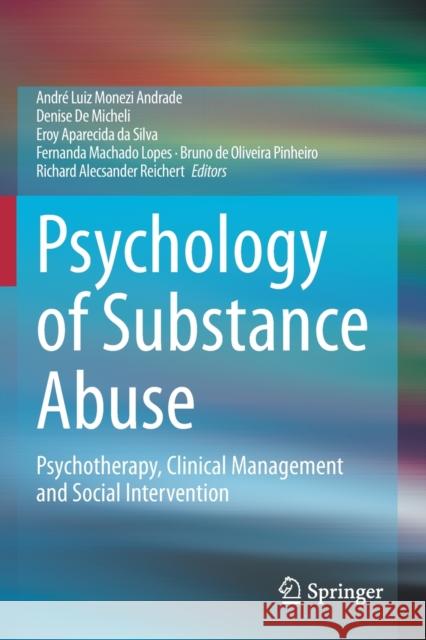Psychology of Substance Abuse: Psychotherapy, Clinical Management and Social Intervention » książka
topmenu
Psychology of Substance Abuse: Psychotherapy, Clinical Management and Social Intervention
ISBN-13: 9783030621087 / Angielski / Miękka / 2022
Psychology of Substance Abuse: Psychotherapy, Clinical Management and Social Intervention
ISBN-13: 9783030621087 / Angielski / Miękka / 2022
cena 322,01
(netto: 306,68 VAT: 5%)
Najniższa cena z 30 dni: 308,41
(netto: 306,68 VAT: 5%)
Najniższa cena z 30 dni: 308,41
Termin realizacji zamówienia:
ok. 22 dni roboczych.
ok. 22 dni roboczych.
Darmowa dostawa!
This book is a guide for psychologists working with substance users in different healthcare settings, from private clinical practice to larger health institutions and community services. It presents a comprehensive overview of the different aspects involved with substance use disorders from a psychological perspective, from prevention to recovery. The volume offers an integrative view about neurobiological, behavioral and psychosocial aspects related to becoming a substance user; shows how psychological assessment tools can be used to diagnose substance use disorders; describes how different kinds of psychotherapy can be applied in the treatment of substance use disorders; and presents a range of evidence-based clinical and social interventions designed for both prevention and treatment of substance use disorders. Apart from covering the whole range of services related to the prevention, diagnosis and treatment of substance use disorders, the volume also shows how these issues can be approached from different theoretical perspectives within psychology, such as:
- Behavioral and Cognitive Psychology
- Neuropsychology
- Existential Psychology
- Phenomenology
- Psychoanalysis Analytical Psychology
- Community and Social Psychology











